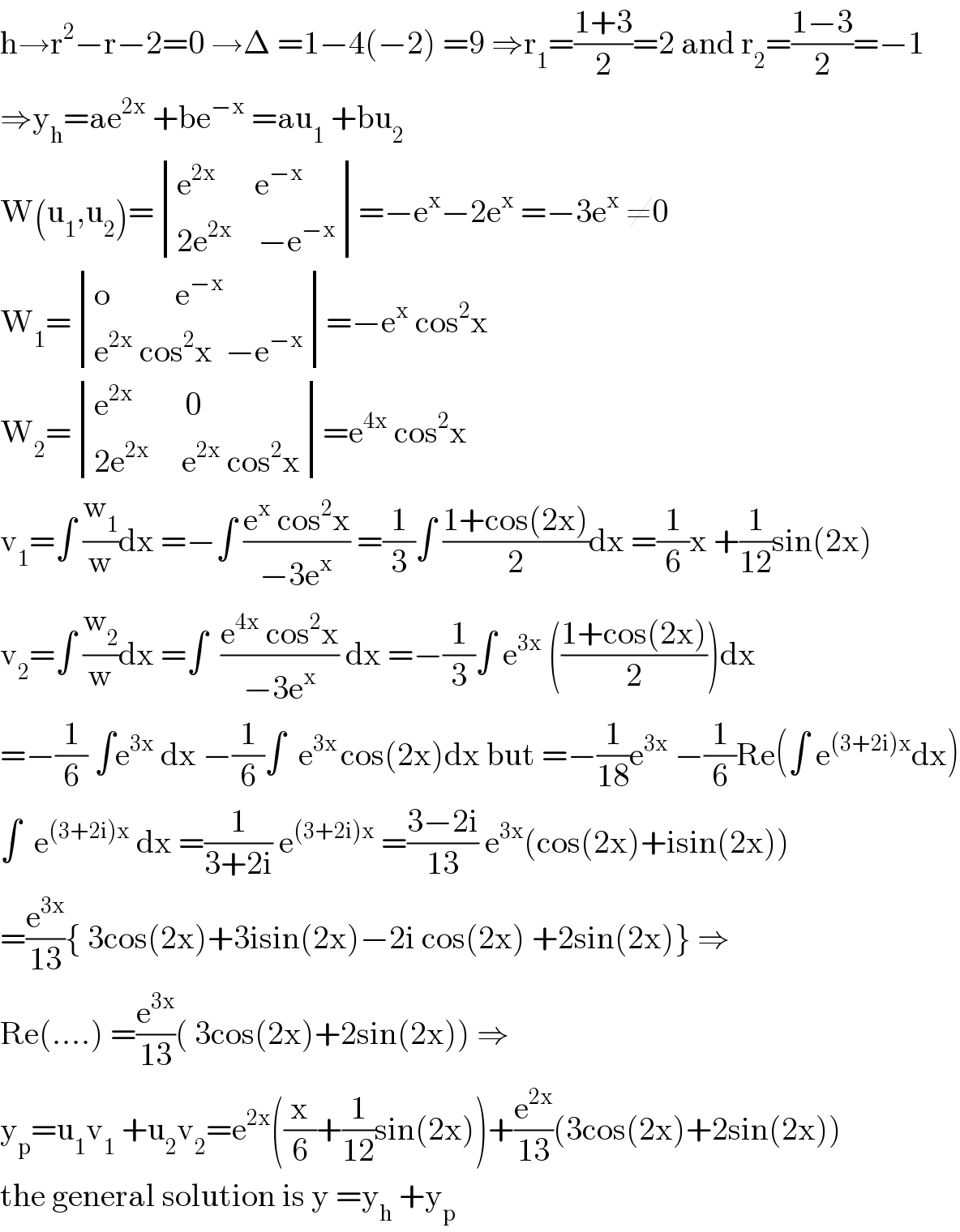
Question and Answers Forum
Previous in Differential Equation Next in Differential Equation
Question Number 115771 by bemath last updated on 28/Sep/20

Answered by TANMAY PANACEA last updated on 28/Sep/20

Answered by mathmax by abdo last updated on 28/Sep/20

